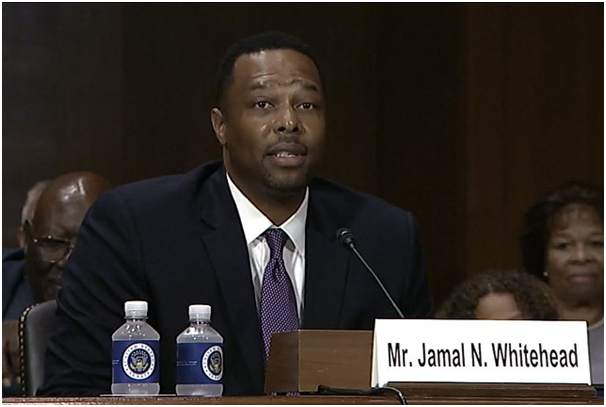
Jamal Whitehead, a trial lawyer hailing from Seattle, has made history by becoming the first judicial nominee with a publicly disclosed disability to be confirmed as a US District Court judge under President Joe Biden's administration. Despite using a prosthetic leg, Whitehead received approval from the Senate Judiciary Committee with support from both sides of the aisle. This confirmation is significant as it brings much-needed diversity to the judiciary, which is currently lacking in representation for individuals with disabilities. Whitehead will join a small number of judges among the 870 life-tenured federal judges who are open about living with a disability, making it a crucial step towards more inclusive and representative courts.
As per the Centers for Disease Control and Prevention, 25% of US adults are disabled. To make the judiciary more representative of the country's population and bring a unique perspective to cases, judges and advocates have stressed the need to appoint more judges with disabilities and encourage disclosure. However, persuading judges and lawyers to disclose their disabilities can be challenging.
In a letter to the Senate Judiciary Committee, the National Employment Lawyer Association has commended Whitehead's nomination, citing his extensive experience in employment matters and "much-needed demographic diversity" as a Black man with a disability. Disability groups who have worked with Whitehead have lauded his litigation expertise, which includes securing multimillion-dollar class action settlements.
Throughout his legal career, Whitehead has won several significant cases, including securing a $5 million jury verdict for an employee who was terminated after beginning to use a prosthetic voice box following treatment for vocal cord cancer. Disability groups have lauded Whitehead for his dedication to ensuring equitable treatment for individuals with disabilities.
In a letter to the Judiciary Committee, Christopher M. Sanders, a lawyer and Whitehead's mentor, emphasized the importance of having judges with lived experiences overcoming disabilities on the bench. Such judges, according to Sanders, have a better understanding of the challenges faced by litigants with disabilities.


